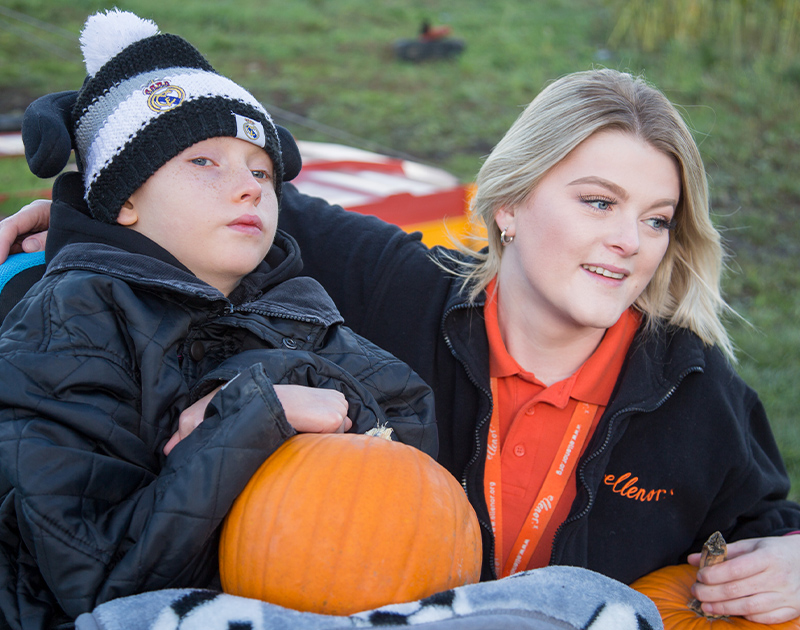At ellenor the education team are always keen to harness the skills of existing members of staff, help them increase their knowledge and climb the career ladder.
People like Children’s Care Assistant Emma Leaver are invaluable to the organisation. Her empathy with children who have life limiting illnesses and their families is something the charity is keen to nurture. She has already been working with ellenor for seven years and is now studying for her Nursing Associate Foundation Degree at Canterbury Christchurch University.
She said: “At the moment I am a Level 3 Children’s Care Assistant, but I wanted to progress more into the clinical side of my job so I could be more hands-on. ellenor has helped support me to move forward. I started at the university last September and it is a two-year course.”
Emma’s time is now split between working at ellenor and doing her university work. She has already learned a lot through her studies and from visiting patients on the hospice ward with the nurses. In turn, ellenor has the benefit of her increased knowledge and she has become even more of an asset to the team.
She said: “I can tell in myself that I have progressed because I am now learning to make my own decisions about a lot of things that I would previously have asked the nurses about. And because of my studies I am now thinking more about why something is happening, and I do a lot of reflections with my patients.”
As part of her course, Emma is also learning about adults and children who have mental health problems and learning disabilities. Students are also expected to pick a topic to research.
She said: “I have been looking at various organisations to see how they support people with mental health needs – supermarkets, GPs and non-NHS organisations. I have done some research with the charity MIND and have looked at how Kent County Council supports youngsters and adults with mental health needs. I will go to a panel later in the year and explain to them everything I have learned.
“It is all very interesting but also a lot to take in especially as I have dyslexia. Some of my assignments can be 2-4,000 words long so I can get pretty exhausted, but the university is very supportive, giving me extra time and one-to-one sessions.”
Emma’s studies are mostly financed by the government, with ellenor securing a grant for the final five per cent of the cost. In return Emma will stay with the charity for at least two years after she qualifies as a Nurse Associate.
She said: “A Nurse Associate is between a health care assistant and a nurse. It involves greater responsibilities. I will be able to support the nurses more by doing things like taking bloods and setting up syringe drivers.








